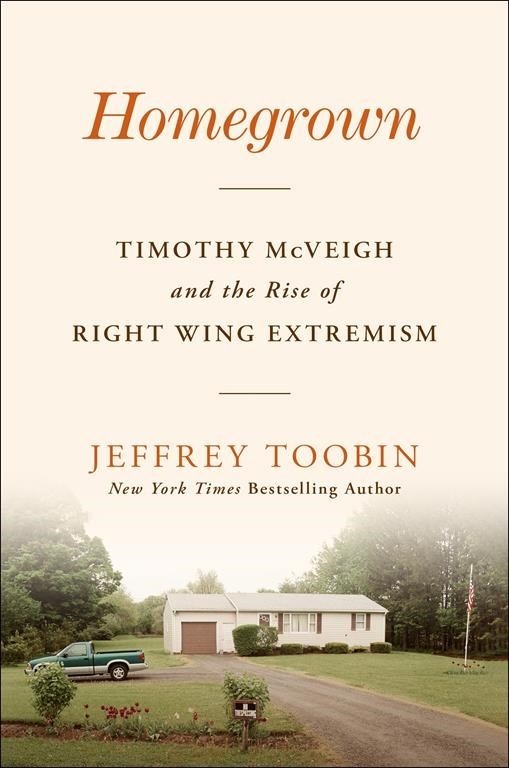ŌĆ£Homegrown: Timothy McVeigh and the Rise of Right-Wing Extremism,ŌĆØ by Jeffrey Toobin (Simon & Schuster)
In the nearly three decades that have passed since the Oklahoma City bombing, one of the most chilling aspects of the attack is how Timothy McVeigh was radicalized into the domestic terrorist he became.
The that killed 168 people occurred long before 4chan, Twitter or Facebook. Instead, McVeigh and coconspirator Terry Nichols connected with extremist voices through much simpler means such as gun shows, right-wing publications and radio programs.
In ŌĆ£Homegrown: Timothy McVeigh and the Rise of Right-Wing Extremism,ŌĆØ legal analyst Jeffrey Toobin provides the most authoritative and compelling history of the 1995 Oklahoma City bombing to date.
But what makes it such a gripping read is how Toobin puts the attack in context of an extremist, anti-government movement that has accelerated in the Internet age and eventually led to the Jan. 6 insurrection at the U.S. Capitol.
The book revisits a story Toobin first chronicled in 1997 as he covered the trials of McVeigh and Nichols for The New Yorker magazine. ŌĆ£HomegrownŌĆØ benefits from fresh interviews from figures such as former President Bill Clinton and Attorney General Merrick Garland, who oversaw the prosecution of McVeigh and Nichols.
It also provides many new details through documents that McVeigh's lead attorney donated to the University of Texas that include summaries of conversations and letters between the bomber and his lawyer.
The materials offer a detailed history of McVeigh, how he connected with Nichols and how he planned and carried out the bombing. The themes that emerge are familiar ones for anyone who's followed the Jan. 6 cases and other right-wing extremist incidents in recent years: an obsession with guns, antigovernment views and racist beliefs espoused in writings such as the novel ŌĆśThe Turner Diaries.ŌĆÖ"
Those themes are why Toobin writes at the outset that the bombing has had a ŌĆ£lasting and sinister legacy.ŌĆØ His account of the bombing serves as a warning sign as much as it does a history of that legacy.
Andrew Demillo, The Associated Press




